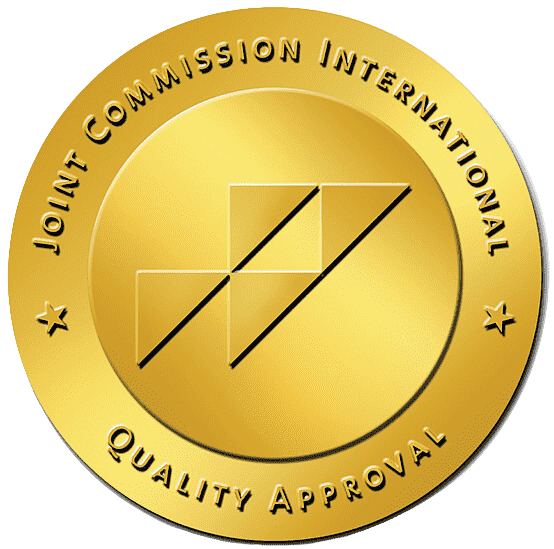Exploring Dual Diagnosis Treatment
Understanding Dual Diagnosis
Dual diagnosis, also known as co-occurring disorders, refers to the simultaneous presence of a mental health disorder and a substance use disorder in an individual. According to the Cleveland Clinic, in 2020, approximately 17 million adults in the U.S. experienced a co-occurring mental health and substance use disorder. This complex relationship between mental health and substance abuse requires a comprehensive and integrated treatment approach to address both issues effectively.
Importance of Integrated Treatment
Integrated treatment is essential for individuals with dual diagnosis. Addressing both mental health issues and substance use disorders concurrently is vital to achieving successful outcomes. The necessity of treating these conditions together to provide complete care, ultimately leading to improved health outcomes.
A multidisciplinary approach is crucial in integrated treatment, involving a team of medical experts, therapists, and addiction counselors. This collaborative effort ensures that individuals receive personalized and holistic care tailored to their unique needs. Support groups also play a significant role in dual diagnosis treatment by providing emotional and social support to help maintain sobriety and cope with everyday challenges (Cleveland Clinic).
The Substance Abuse and Mental Health Services Administration (SAMHSA) highlights the importance of integrating both screening and treatment for mental and substance use disorders. This approach leads to better quality care and health outcomes by treating the whole person rather than focusing on isolated issues.
By adopting an integrated and multidisciplinary approach, we can address the unique needs of individuals with dual diagnosis, ensuring they receive the best possible care. For more information on other aspects of dual diagnosis treatment, visit our pages on behavioral health treatment, mental health treatment, and residential treatment,
Elements of Dual Diagnosis Treatment
Behavioral Therapy
At Cottages on Mountain Creek, we recognize the importance of incorporating behavioral therapy into our dual diagnosis treatment. Behavioral therapy focuses on changing unhealthy behaviors through various therapeutic techniques. For dual diagnosis, integrating behavioral therapy addresses both the addiction and the mental health condition simultaneously. This approach ensures comprehensive care, vital for long-term recovery.
There are several types of behavioral therapies that can be beneficial for individuals with dual diagnosis, such as Cognitive-Behavioral Therapy (CBT), Dialectical Behavior Therapy (DBT), and Motivational Interviewing. These therapies help individuals develop coping strategies, manage stress, and address the root causes of their conditions.
Medication Management
Medication management is another crucial component of dual diagnosis treatment at Cottages on Mountain Creek. Medications can be essential for treating various mental health disorders, such as depression, anxiety, and bipolar disorder. They may also help manage withdrawal symptoms and cravings associated with substance abuse.
We work closely with our clients to develop personalized medication plans tailored to their unique needs. By combining medication management with behavioral health treatment, we aim to provide a holistic approach to recovery. Effective medications exist for treating disorders such as opioid, alcohol, and nicotine use, as well as alleviating symptoms of other mental health disorders.
Support Groups
Support groups play a significant role in dual diagnosis treatment by offering a safe and supportive environment for individuals to share their experiences, challenges, and successes. At Cottages on Mountain Creek, our support groups are designed to provide emotional and social support, helping individuals maintain sobriety and cope with everyday challenges.
Participating in support groups can help individuals feel less isolated, gain insight from others facing similar struggles, and develop a network of supportive peers. This communal aspect of recovery is essential for long-term success and overall well-being (Cleveland Clinic).
In-Patient Care
In-patient care is often necessary for those with dual diagnosis, especially during the initial stages of recovery. At Cottages on Mountain Creek, we provide comprehensive in-patient care to help individuals safely detoxify from substances and manage withdrawal symptoms. Our healthcare providers monitor patients 24/7, ensuring a safe and supportive environment.
During in-patient care, individuals have access to various therapeutic services, including individual therapy, group therapy, and medication management. This integrated approach helps address both the mental health and substance abuse aspects of dual diagnosis, setting the foundation for a successful recovery. For more information on our in-patient care options, visit our residential treatment page.
Strategies for Effective Treatment
At Cottages on Mountain Creek, we believe that an effective dual diagnosis treatment program is built on key strategies. These include evidence-based therapies, dual-focused support groups, and a comprehensive post-treatment support plan.
Evidence-Based Therapies
Integrated therapy is essential for treating dual diagnoses, ensuring that mental health and substance abuse disorders are addressed concurrently (Mental Health Match). We utilize a range of evidence-based therapies to provide comprehensive care:
- Cognitive-Behavioral Therapy (CBT): Helps individuals understand and change their thought patterns and behaviors that contribute to their disorders.
- Dialectical Behavior Therapy (DBT): Focuses on emotional regulation and developing coping strategies.
- Motivational Enhancement Therapy (MET): Aims to increase the individual’s motivation to change.
| Therapy Type | Focus Area |
|---|---|
| Cognitive-Behavioral Therapy (CBT) | Thought patterns and behaviors |
| Dialectical Behavior Therapy (DBT) | Emotional regulation and coping strategies |
| Motivational Enhancement Therapy (MET) | Motivation to change |
Our integrated approach ensures that each therapy type supports the other, offering a holistic treatment plan tailored to the individual’s needs.
Dual-Focused Support Groups
Support groups play a pivotal role in our dual diagnosis treatment by providing individuals with both emotional and social support (Cleveland Clinic). These groups are designed to address both mental health issues and substance use disorders, allowing members to share experiences and coping strategies.
Our dual-focused support groups cater to a variety of needs:
- Peer Support: Provides a safe space for individuals to share their experiences and learn from others.
- Relapse Prevention: Focuses on strategies to maintain sobriety and prevent relapse.
- Mental Health Support: Helps individuals manage their mental health conditions in a supportive environment.
For more information on how support groups can aid in behavioral health treatment, visit our detailed guide.
Post-Treatment Support Plan
An effective post-treatment support plan is critical for ensuring long-term success in managing dual diagnoses. Our post-treatment plans include:
- Outpatient Therapy: Regular sessions with a therapist to continue addressing both mental health and addiction issues.
- Relapse Prevention Strategies: Tailored approaches to help individuals recognize triggers and develop coping mechanisms.
- Regular Check-ins: Scheduled appointments to monitor progress and make necessary adjustments to the treatment plan.
| Component | Description |
|---|---|
| Outpatient Therapy | Continued therapeutic support |
| Relapse Prevention Strategies | Techniques to avoid relapse |
| Regular Check-ins | Ongoing assessment and support |
Our commitment to a well-defined post-treatment support plan ensures that individuals remain on a steady path to recovery. For more details, explore our resources on post-treatment support plans.
At Cottages on Mountain Creek, our innovative dual diagnosis treatment program is designed with these strategies in mind, ensuring that individuals receive the comprehensive care they need for a successful recovery. Learn more about our approach to mental health treatment and substance abuse treatment on our website.
Unique Needs in Dual Diagnosis Treatment
At Cottages on Mountain Creek, we recognize the specialized needs of individuals seeking dual diagnosis treatment. Addressing the complexities of both mental health and substance use disorders requires a nuanced approach that incorporates various strategies tailored to each individual.
Collaborative Treatment Approach
Our dual diagnosis treatment program emphasizes a collaborative approach, essential for achieving successful outcomes. Effective treatment of dual diagnosis involves simultaneous attention to both mental health and substance use disorders, employing a multidisciplinary team of medical experts, therapists, and addiction counselors.
| Key Components | Description |
|---|---|
| Multidisciplinary Team | Includes medical experts, therapists, and addiction counselors |
| Concurrent Treatment | Addresses mental health and substance use disorders simultaneously |
| Routine Screening | Ensures identification and appropriate care for individuals with co-occurring disorders (SAMHSA) |
By fostering collaboration among healthcare providers, we ensure that each aspect of a patient’s condition is addressed comprehensively. This integrated care model is based on the principles highlighted by SAMHSA, ensuring that individuals receive appropriate treatment without falling through the cracks.
Specialized Treatment Plans
We understand that each individual presenting with dual diagnosis has unique needs. Therefore, our approach involves creating specialized treatment plans tailored to each person’s specific circumstances. This involves a combination of therapies and interventions designed to address both mental health and substance use disorders effectively (Cleveland Clinic).
| Treatment Components | Possible Inclusions |
|---|---|
| Behavioral Therapy | Various evidence-based therapies tailored to individual needs |
| Medication Management | Appropriate medications to manage mental health conditions and aid in substance use recovery |
| Support Groups | Dual-focused support groups for sharing experiences and learning coping strategies |
| In-Patient Care | Structured environments like residential treatment or day programming for intensive support |
Our treatment plans are flexible and adjust over time based on ongoing assessments and individual progress. By providing a variety of behavioral health treatments and continuous support, we aim to empower individuals on their journey to recovery.
Our commitment to addressing the specialized needs in dual diagnosis treatment ensures that our patients receive the most comprehensive and effective care possible. For more detailed insights into our methods and programs, explore our PHP treatment and IOP treatment options.
Challenges in Dual Diagnosis Services
Dual diagnosis treatment, addressing both mental health disorders and substance use disorders, presents several unique challenges. At Cottages on Mountain Creek, we strive to overcome these barriers to provide comprehensive and effective care.
Co-Occurring Disorder Barriers
Treating co-occurring disorders simultaneously is essential yet challenging. Some of the primary barriers include:
- Stigma and Misunderstanding: Many individuals feel ashamed or misunderstood about their mental health and substance use issues, hindering them from seeking help. Education and awareness are vital to breaking this stigma.
- Diagnosis Complexity: Accurate diagnosis can be difficult due to overlapping symptoms of mental health and substance use disorders. This complexity often leads to misdiagnosis or missed diagnosis.
- Integration of Services: Often, mental health services and substance use treatment services operate in silos, making integrated care difficult. It is crucial to ensure a seamless approach to address both issues concurrently.
- Access to Resources: Availability and access to specialized programs that offer dual diagnosis treatment can be limited in certain areas. Ensuring consistent access to quality care is imperative.
Delivery of Co-Occurring Disorder Services
Efficient service delivery is crucial in dual diagnosis treatment. We focus on several key areas:
Comprehensive Approach: Following SAMHSA’s “no wrong door” policy, we ensure individuals are assessed and treated appropriately regardless of where they seek services. This policy, articulated by the Substance Abuse and Mental Health Services Administration, emphasizes that patients needing treatment for co-occurring disorders will receive integrated care or appropriate referrals (SAMHSA).
Coordinated Care: Integrated services must be well-coordinated among healthcare providers. Effective communication and teamwork are essential in managing co-occurring disorders.
Training and Education: Our staff receives continuous training on the latest evidence-based practices and approaches in dual diagnosis treatment. This ensures that we are equipped to deliver the best possible care.
Holistic Support: Effective treatment involves addressing physical, emotional, and social needs. By offering services like residential treatment and day programming, we provide comprehensive support beyond traditional clinical care.
Monitoring and Adaptation: Ongoing assessment and adaptation of treatment plans are crucial in addressing the evolving needs of our clients. Regular reviews and adjustments ensure that treatment remains effective and responsive to individual progress.
| Type of Barrier | Description |
|---|---|
| Stigma and Misunderstanding | Shame and misunderstanding about co-occurring conditions |
| Diagnosis Complexity | Difficulty in accurately diagnosing overlapping symptoms |
| Integration of Services | Challenges in providing seamless, concurrent care |
| Access to Resources | Limited availability to specialized programs |
Addressing these barriers and improving service delivery is essential for effective dual diagnosis treatment. By overcoming these challenges, we can better support individuals in their journey towards recovery. For more information, explore our behavioral health treatment options.
Screening and Assessment in Treatment
The essential components of effective dual diagnosis treatment at Cottages on Mountain Creek include meticulous screening and comprehensive assessment. These processes ensure that we fully understand our clients’ needs and can develop personalized treatment plans to address both mental health and substance use disorders.
Comprehensive Assessment Process
Our comprehensive assessment process is designed to delve into various aspects of a client’s life, focusing on biopsychosocial factors that contribute to current symptoms and functional status. This involves gathering a detailed history of past symptoms related to Substance Use Disorders (SUDs) or mental illness, which helps us make informed decisions about treatment and follow-up care. According to NCBI Bookshelf, this thorough investigation fosters improved treatment planning, optimizing adherence and outcomes.
The biopsychosocial assessment approach considers medical, psychological, emotional, sociocultural, and socioeconomic factors. This holistic understanding of the client’s experiences is crucial for accurate diagnosis, effective treatment planning, and positive treatment outcomes.
| Assessment Component | Examples |
|---|---|
| Medical | Past and present health conditions, medications |
| Psychological | Mental health history, emotional stability |
| Sociocultural | Family dynamics, cultural background |
| Socioeconomic | Employment status, financial stability |
Ongoing Screening and Assessment
Continual screening and assessment are fundamental as clients move through the recovery process for Co-Occurring Disorders (CODs). Regular monitoring allows us to adjust treatment plans as needed, ensuring that our clients receive the most effective care possible. According to NCBI Bookshelf, ongoing assessment leads to better treatment planning and improved outcomes, even if immediate resources for thorough screenings aren’t always available.
The importance of routine screening, as emphasized by SAMHSA, cannot be overstated. Individuals with co-occurring disorders are more likely to require hospitalization compared to those with a single disorder, making early identification and appropriate care critical.
Our approach aligns with SAMHSA’s “no wrong door” policy, ensuring that individuals seeking treatment are identified, assessed, and provided with appropriate care, regardless of where they access services. This policy involves routine screening for mental disorders in individuals seeking treatment for substance use disorders, and vice versa.
At Cottages on Mountain Creek, we believe in comprehensive and continuous assessment to provide our clients with the best possible dual diagnosis treatment. Explore more about our holistic treatment approach by visiting our pages on behavioral health treatment, day programming, residential treatment, and transitional independent living program.



